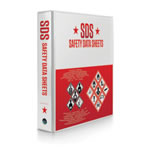3 Tips to Prevent Chemical Workplace Accidents
No one ever expects to be involved in a workplace accident. However, accidents can happen anywhere and at any time, even in the most safety-conscious workplaces. According to the Occupational Safety and Health Administration (OSHA), there are more than 4,500 workplace fatalities each year in the United States versus in Canada there were 924 deaths in 2020 – 2021 according to the Association of Workers’ Compensation Boards of Canada (AWCBC). Many of these accidents are preventable with the proper safety measures in place.
If you work with chemicals on a daily basis, it’s important to be extra vigilant about safety. Here are three tips to help you prevent a chemical workplace accident:
Know the Chemicals You’re Working With
This may seem like a no-brainer, but it’s important to have a good understanding of the specific chemicals you’re working with—including their properties and potential hazards. When you know what you’re dealing with, you can take the necessary precautions to protect yourself. For example, if you’re working with a substance that is corrosive or toxic, you’ll need to take special care to avoid contact with your skin or breathing in fumes. One example was an incident in St-Catherine’s Ontario Canada in which an outside contractor accidentally hit a valve spilling 5 L (1.32 gallons) of hydrochloric acid sending 23 workers to hospital that were exposed to fumes.
Wear Personal Protective Equipment (PPE)
One of the best ways to protect yourself from a chemical workplace accident is to wear personal protective equipment (PPE). This could include gloves, goggles, respirators, or protective clothing, depending on the type of work you’re doing. It’s also important to make sure that your PPE is made from materials that are compatible with the chemicals you’re working with—you don’t want your gloves melting because they came into contact with a corrosive substance!
Keep Your Work Area Clean and Organized
A cluttered work area is an accident waiting to happen. If possible, minimize the number of chemicals you’re working with at one time so that there’s less of a chance for spills or leaks. Make sure containers are properly labeled and stored upright so that they won’t tip over. And always clean up spills immediately—don’t wait until later. By following these simple tips, you can help keep yourself safe from a chemical workplace accident. Also, remember to keep visitors out of areas where chemical processes are occurring unless they are chaperoned/supervised by someone who knows the hazards in that area.
Chemical workplace accidents can have disastrous consequences. However, by taking some simple precautions—such as knowing the chemicals you’re working with, wearing personal protective equipment (PPE), and keeping your work area clean and organized—you can help keep yourself safe from harm. Keep these tips in mind next time you’re working with dangerous chemicals!
ICC is dedicated to keeping us all safe when handling, storing, manufacturing or transporting dangerous goods. Our team can help your business stay compliant and informed through our resources and products. Contact us to learn more about the ICC difference.
Stay up to date and sign up for our newsletter!
We have all the products, services and training you need to ensure your staff is properly trained and informed.
 Safety Data Sheet (SDS) Services |
 OSHA / WHMIS / GHS Training Courses |
 GHS Publications |







 ICC USA
ICC USA ICC Canada
ICC Canada